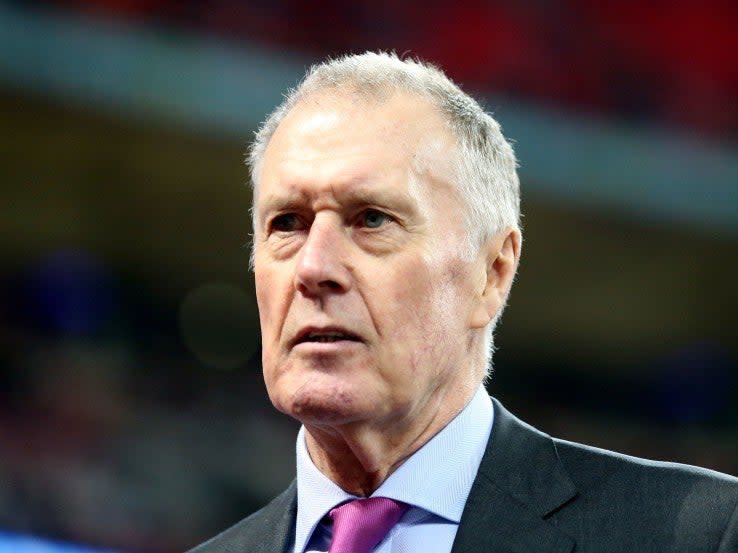Geoff Hurst demands further action over ‘inarguable’ link between football and dementia

Sir Geoff Hurst has backed calls for top clubs to limit heading in training sessions and urged for further action to tackle the ‘inarguable’ link between football and dementia.
England’s 1966 World Cup final hero has seen five of his team-mates from the starting line-up that day suffer from the disease, with Sir Bobby Charlton the latest to make his diagnosis public.
Charlton’s announcement followed the deaths of his brother, Jack, and Nobby Stiles – both of whom had been diagnosed with dementia – earlier this year.
Ray Wilson and Martin Peters are the other heroes of ’66 who have passed away after battling the disease and concerns are not limited to former players.
Chelsea defender Thiago Silva admitted he had suffered ‘terrible headaches’ after recent Premier League games against Burnley and Sheffield United due to the number of aerial challenges he was involved in.
And while training methods may have moved on from Hurst’s era, he believes capping the number of headers permitted in a practice session can only benefit today’s professionals.
“It’s not necessarily the amount of times you head the ball in a game – I could look at instances where I only headed the ball once or twice in a game,” Hurst said.
“But it’s the practice. I go back to my time at West Ham, where we had a ball hanging from the ceiling in the gym and we would practice heading it constantly for up to half an hour.
“We played head tennis in the gym and we would practice on the training field. With guys crossing the ball for half an hour, you could be heading it 20 or 30 times.
“Those issues – within training rather than the game itself – should be addressed as the amount of times you head the ball in practice must have a huge impact.
“We’d have absolutely cut down the number of times we headed the ball had we known then what we know now.”
Hurst has also backed research which shows how smart meters could transform care for vulnerable people living with illnesses such as dementia, depression and Parkinson’s.
Research from independent think tank 2020health suggests energy usage patterns from smart meter data could be used as a non-intrusive way to understand daily habits, with relatives or healthcare workers to be notified by irregularities in these patterns.
The data shows 81% of adults would be comfortable letting a family member live on their own for longer if they could be alerted to unusual changes in behaviour, and nearly three-quarters believe tech has the potential to change the way we live and care for ourselves.
“It is very welcome news that something as small as a smart meter could potentially help our healthcare services in the future,” added Hurst.
“I’m interested in new technological developments which can help sufferers, as well as their families and carers.
“I grew up with Martin Peters, who passed away last year, and played alongside him for West Ham and England.
READ MORE: How new documentary celebrates Jack Charlton and confronts dementia
“My wife speaks to his widow Kathy every day. We understand, having had first-hand phone calls on a daily basis, how difficult it is for the partner, family and wife living with somebody suffering from dementia.”
It is now 18 years since a coroner recorded a verdict of ‘death by industrial disease’ in relation to Hurst’s former England strike partner Jeff Astle, whose daughter Dawn has been a relentless campaigner on the topic.
Hurst believes action from the game’s authorities is now overdue and has urged the governing body to put the issue at the top of their new chairman’s agenda when an appointment is made.
“It is becoming a bigger issue every day and it has to be one of the key issues for the new FA chairman to address,” Hurst said.
“The bigger the issue gets, the more difficult it is for people in the higher levels of sport to step away from dealing with it.
“I see something almost every day about ex-players who are suffering.
“Sir Bobby (Charlton) is the fifth member of our ’66 team to suffer from dementia – and other squad members have suffered too.
“There is a strong, inarguable link. Anything that can be done to increase the research around this will be hugely beneficial to current and former players.”
Sir Geoff Hurst is encouraging people to speak to their energy suppliers about getting a smart meter installed.
Read More
How new documentary celebrates Jack Charlton and confronts dementia

 Yahoo Sport
Yahoo Sport 





































